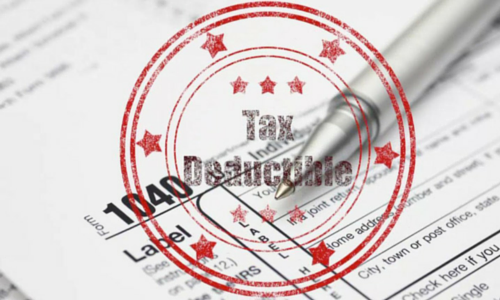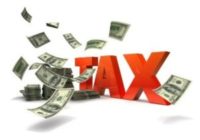When people think “Tax Day” they usually think of April 15. It’s a little more complicated than that. Your tax day depends on your filing status, location, and extensions. If the date falls on a Saturday, Sunday, or federal holiday, the tax deadline will be the next business day.
All returns or payments must be postmarked on or before the deadline. Even if you can’t pay all the taxes you owe right away, try not to miss a deadline. Penalties for missing a deadline are higher than not paying taxes. File your return and apply for an installment agreement to spread out your tax payment, if necessary.
April 15 – Deadline for:
* Filing federal forms and paying taxes owed for the previous calendar year
* Filing for a 6-month extension using Form 4868 and paying your estimated taxes due (submit payment along with Form 4868)
* Last day for making 2018 contributions to your traditional or Roth IRA
June 15:
* Federal deadline for filing a return or requesting an extension for any U.S. citizen, resident alien, or military on duty who is living and working outside the U.S. or Puerto Rico. The extension is for 4 months.
October 15 – Tax Return Extension Deadline for:
* Filing federal forms and paying taxes due after filing for the 6-month extension
* Filing federal forms and paying taxes due after filing for the 4-month extension if you are abroad
Quarterly Payment Dates (for those not withholding taxes or not withholding enough):
* January 15: 4th payment of estimated taxes due for 2018
* April 15: 1st payment of estimated taxes for 2019
* June 15: 2nd payment of estimated taxes for 2019
* Sept. 15: 3rd payment of estimated taxes for 2019
Tax Dates for Businesses:
* Partnership returns (Form 1065): Due March 15, extended deadline September 16, 2019
* C-Corporation returns (Form 1120): If you operate on a calendar year, returns are due April 15 with an extension date of October 15. If you operate on a fiscal year, returns are due the 15th day of the 4th month after the end of your fiscal year.
* S-Corporation returns (Form 1120-S): If you operate on a calendar year, returns are due March 15 with an extension date of October 15. If you operate on a fiscal year, returns are due the 15th day of the 3rd month after the end of your fiscal year.
What Your Tax Preparer Needs
Be sure to bring to your accountant all the information needed to quickly and properly prepare your returns. For individuals, that would include identifying information for you and your dependents, last year’s tax return, all income statements, and proof of expenses you wish to deduct. Don’t forget proof of retirement account contributions, educational expenses, job-hunting or business expenses, and more.
It’s better to err on the side of caution and bring whatever you think might help your accountant provide you with the best tax outcome.
Businesses need to provide more details:
* Income statement and balance sheet
* List of assets and equipment purchased, sold, or disposed of during the year
* Details of business expenses
* Details of business income
* Estimated tax payments
* Details of payments, dividends, or distributions to employees, contractors, and/or shareholders
At Koelle, we have decades of experience helping individuals and businesses in Willow Grove and area communities file their taxes on time and accurately, while taking advantage of every opportunity the law offers. Contact us to see how we can help you.





